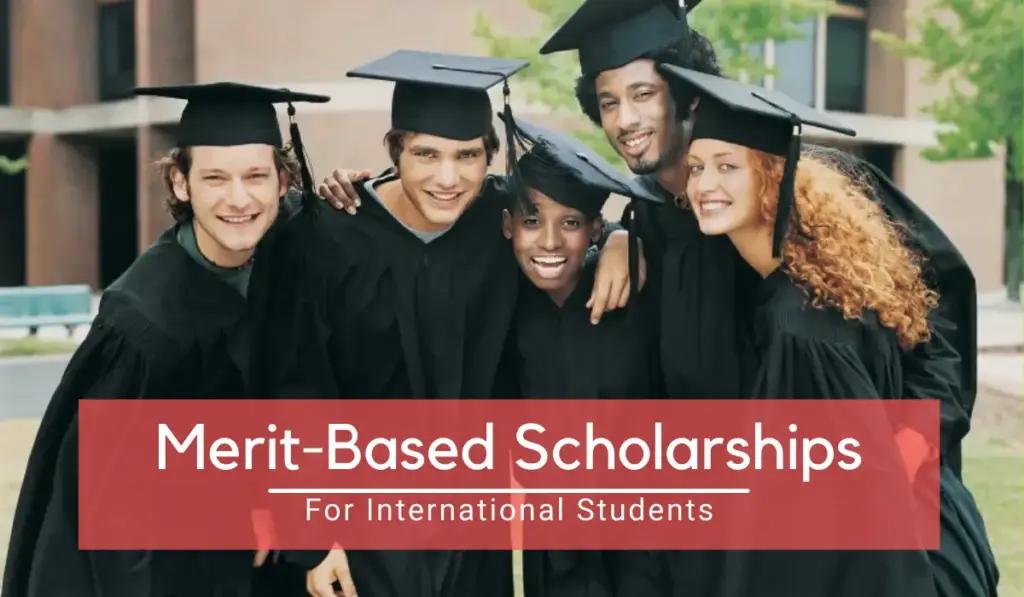I remember staring out the window of my high school classroom, the afternoon sun glinting off the dusty pane. College felt like a distant, shimmering mirage – beautiful, enticing, but utterly out of reach. My family wasn’t wealthy. In fact, we lived paycheck to paycheck, and the thought of tuition, books, and living expenses for four years was enough to make my stomach churn. I had dreams, big ones, but they felt trapped behind a very tall, very expensive financial wall. That’s when my guidance counselor, a kind woman named Ms. Evans, pulled me aside after class one day. She had a stack of pamphlets in her hand and a knowing smile. "Have you ever thought about merit-based scholarships, Alex?" she asked. That was the day the wall started to look a little less imposing.
Before that conversation, I thought scholarships were only for the super-geniuses or the star athletes. I was a good student, yes, and I participated in a few clubs, but I certainly didn’t feel like I belonged in the "super-genius" category. Ms. Evans explained that merit-based scholarships weren’t just about perfect grades, though good grades certainly helped. They were about showing potential, demonstrating leadership, having a passion, and proving that you could contribute something valuable to a college community. It was about what you merited, what you earned through your efforts and character, not just what your family could afford. That idea – that my hard work could actually pay for my education – was a revelation. It felt like someone had handed me a map to that distant mirage.
My first step was a deep dive into what exactly these scholarships looked for. Ms. Evans helped me understand that colleges and organizations offering these funds weren’t just giving away money; they were investing in future leaders, innovators, and thinkers. They wanted to see a well-rounded individual, someone who didn’t just ace exams but also made a difference outside the classroom. This meant looking at my academic record, of course, but also my extracurricular activities, volunteer work, leadership roles, and even my personal character, often revealed through essays and interviews. It was a holistic picture, and suddenly, my involvement in the debate club, my volunteer work at the local animal shelter, and my part-time job tutoring younger kids all seemed to gain new significance. They weren’t just things I did; they were pieces of a story I needed to tell.
The application process felt like a marathon, not a sprint. It started with research, and lots of it. I spent hours online, sifting through scholarship databases, checking university websites, and even asking my teachers if they knew of any local opportunities. It felt overwhelming at first, a never-ending list of deadlines and requirements. But Ms. Evans gave me a simple piece of advice: "Start small, Alex. Apply for a few that seem like a good fit, learn from the process, and then expand." I decided to focus on scholarships that aligned with my interests – ones for students interested in writing, or community service, or even just general academic achievement.
My first application was a disaster, to be honest. I rushed the essay, didn’t proofread properly, and probably undersold myself. I got a polite rejection letter a few months later, and while it stung, it also taught me a crucial lesson: effort matters. This wasn’t something you could just coast through. Each application needed attention, care, and a genuine reflection of who I was. It was like building a case for myself, meticulously gathering evidence and presenting it in the best possible light.
The next application cycle, I approached things differently. I started early, creating a spreadsheet to track deadlines, requirements, and essay prompts. I set aside dedicated time each week, treating it like another class. The essay, I realized, was often the most crucial part. This was my chance to speak directly to the scholarship committee, to let my personality shine through, and to explain why I deserved their investment. I remember one essay prompt asked about a challenge I had overcome. Instead of writing a generic story, I decided to share my experience organizing a fundraiser for the animal shelter after a local flood. I talked about the difficulties, the moments of doubt, and the immense satisfaction of seeing the community come together. It wasn’t just about the flood; it was about resilience, problem-solving, and leadership – qualities that merit-based scholarships often value.
Another key component was recommendation letters. I learned that asking for a recommendation isn’t just about picking any teacher; it’s about choosing someone who truly knows you, your work ethic, and your character. I approached my English teacher, Mr. Harrison, and my debate coach, Ms. Chen. I didn’t just ask them for a letter; I provided them with a resume of my achievements, a list of the scholarships I was applying for, and a brief summary of my goals. This made it easier for them to write specific, compelling letters that highlighted my strengths and potential. Their letters weren’t just generic praise; they were personal endorsements that added significant weight to my applications.
Then there were the interviews. Some scholarships required an in-person or virtual interview, and these felt like the most nerve-wracking part. I remember preparing for my first scholarship interview by practicing with Ms. Evans. She asked me tough questions: "Why this scholarship? What are your biggest weaknesses? How do you handle failure?" It taught me to articulate my thoughts clearly, to be confident but humble, and most importantly, to be authentic. They weren’t looking for perfect answers, she explained, but for genuine passion and a good fit. During one interview, I was asked about my long-term career goals. Instead of just listing a job title, I talked about the impact I hoped to make, connecting it back to my experiences in community service. I spoke from the heart, and I think that resonated.
Slowly but surely, the hard work began to pay off. The first acceptance letter arrived in a thick envelope, and my hands trembled as I opened it. It wasn’t for a full ride, but it was a substantial amount, enough to cover a significant portion of my tuition at my dream university. I remember showing it to my parents, their faces lighting up with a mixture of pride and relief. That moment solidified everything for me: merit-based scholarships weren’t just a financial aid tool; they were a testament to my effort, a validation of my potential, and a bridge to a future I once thought was impossible.
Over the next few months, more letters arrived, some acceptances, some rejections, each one a learning experience. I learned to celebrate the wins and to not dwell on the losses, understanding that competition was fierce, and sometimes it just wasn’t the right fit. I ended up piecing together several scholarships, some from the university itself, others from private organizations, and even a local community fund. Collectively, they made attending college a reality, turning that distant mirage into a tangible path.
My college experience was profoundly shaped by these scholarships. Not only did they alleviate the financial burden, allowing me to focus on my studies rather than constantly worrying about money, but they also opened doors to new opportunities. Many scholarship programs came with additional perks: mentorship, networking events, and even study abroad opportunities. I joined a scholars’ program that connected me with like-minded students and faculty, creating a supportive community that pushed me to excel even further. It wasn’t just about the money; it was about the entire ecosystem of support that came with being a recognized "merit scholar."
Looking back, the entire journey taught me invaluable lessons beyond just how to write a good essay or ace an interview. It taught me perseverance, the importance of self-advocacy, and the power of believing in myself. It taught me that opportunities exist, but you often have to seek them out with diligence and determination. It also made me realize that my unique experiences and perspectives were assets, not just things to be listed on a resume.
For anyone out there feeling like I did – staring at that financial wall, wondering if college is even possible – please know that merit-based scholarships are a real, viable pathway. Don’t underestimate your own potential. Here’s a little bit of what I learned, distilled from my own trial and error:
First, start early and stay organized. The earlier you begin your search and preparation, the less stressed you’ll be. Create a master list of scholarships, noting deadlines, requirements, and contact information. Use a calendar or a digital planner to keep track of everything. Many scholarships open applications in the fall for the following academic year, so don’t wait until spring to start looking.
Second, understand what "merit" truly means. It’s not just about grades, though maintaining a strong academic record is fundamental. It’s also about what you do outside the classroom. Get involved in activities you genuinely care about. Leadership roles, volunteer work, part-time jobs, artistic pursuits, sports – these all demonstrate valuable skills and character traits. Colleges want students who will contribute positively to their campus community, and your extracurriculars are proof of that.
Third, craft compelling essays. This is your chance to tell your story, to let your personality and passion shine. Don’t just regurgitate your resume. Instead, choose specific anecdotes that illustrate your values, your challenges, and your growth. Be authentic. Show, don’t just tell. If you’re passionate about environmental science, don’t just say it; describe the time you organized a campus clean-up or researched sustainable farming methods. And for goodness sake, proofread! Ask teachers, mentors, or trusted friends to review your essays for clarity, grammar, and impact.
Fourth, cultivate strong relationships with teachers and mentors. These are the people who will write your recommendation letters. A generic letter is easy to spot. A personal, heartfelt letter from someone who knows you well and can speak to your specific strengths is incredibly powerful. Be polite, provide them with plenty of notice, and give them a "brag sheet" – a summary of your achievements, goals, and the specific scholarships you’re applying for. This helps them tailor their letters to your applications.
Fifth, prepare thoroughly for interviews. If an interview is required, practice answering common questions aloud. Think about why you’re interested in the scholarship, what unique qualities you bring, and how you envision your future. Research the organization or university offering the scholarship so you can speak intelligently about their mission and values. Most importantly, be yourself. Interviewers want to see your genuine enthusiasm and personality.
Sixth, don’t be afraid to apply for smaller scholarships. Many students focus only on the big, well-known scholarships, which are incredibly competitive. Smaller local scholarships, often offered by community organizations, businesses, or alumni groups, sometimes have fewer applicants and can add up quickly. A few hundred dollars here, a thousand there – it all makes a significant difference.
Finally, develop a resilient mindset. You will likely face rejections, and that’s okay. Every application is a learning experience. Don’t let a "no" deter you. Keep refining your approach, keep seeking new opportunities, and keep believing in the value of your own hard work. The journey to securing merit-based scholarships is not always smooth, but the destination – an accessible, affordable education – is absolutely worth the effort.
My college years were a whirlwind of learning, growth, and discovery, all made possible because of the faith that various scholarship committees placed in me. I graduated not only with a degree but also with a profound appreciation for the power of opportunity and the importance of pursuing one’s dreams, no matter how distant they might initially appear. If I could do it, starting from a place of uncertainty and financial worry, then you absolutely can too. Your merit, your unique talents, and your unwavering effort are your greatest assets. Go out there, tell your story, and unlock your potential. The world is waiting.



